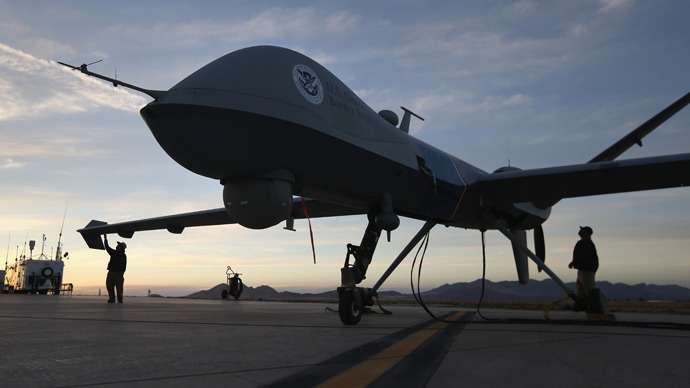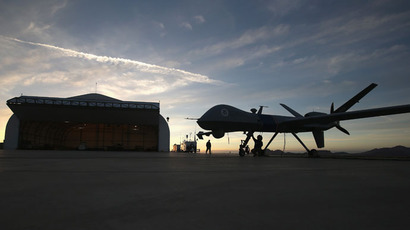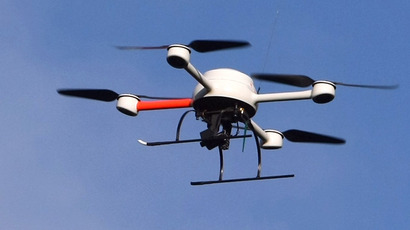US lawyers preparing drone law database as authorities 'make up the rules as they go along'

As Washington increases its reliance on drone warfare overseas, the National Association of Criminal Defense Lawyers is preparing a legal fight at home by setting up a database to protect Americans who could face charges thanks to drone surveillance.
The NACDL’s announcement comes amid questions about drone warfare abroad among US citizens, but there’s even less clarity on the government’s legal right to use unmanned aircraft to track Americans on US soil.
“We’re concerned there aren’t adequate safeguards [against drone use by law enforcement],” Norman Reimer, the executive director of the organization, told US News and World Report. “At the moment, law enforcement is basically going to be making up the rules as they go along, and that’s very troubling from a constitutional perspective.”
Rodney Brossart is the only American to have been apprehended with the help of a Predator drone, which the judge in the case wrote “was used for surveillance,” as quoted by US News in 2012. Despite Brosshart being the lone arrest, Reimer said called it “inevitable” that defense attorneys will have to familiarize themselves with the changing laws.
“Until we get to a place where we have legislation, lawyers will have to be creative and aggressive in making sure courts are protecting their clients’ rights,” Reimer said. “You can’t put technology back in the box. Drones are going to be there and there will be valid, legitimate uses for them. But without any framework, any technological tool is subject to abuse by law enforcement.”
If Brossart’s case is any indication, the NACDL will have no shortage of questions. After he was arrested last year for refusing to return cows that had wandered onto his Iowa farm, Brosshart’s attorney argued that the surveillance was inadmissible because of law enforcement’s “warrantless use of an unmanned military-like surveillance aircraft” and “outrageous government conduct.”
District Judge Joel Medd overruled the objection, writing “there was no improper use of an unmanned aerial vehicle,” and the drone “appears to have no bearing on these charges being contested here.”
Perhaps anticipating similar legal action, Florida Governor Rick Scott signed a measure last week protecting residents from “unwarranted surveillance.” Scott said the Florida bill, passed unanimously by state legislators, promises to “maintain a balance between the need for law enforcement to protect our citizens against credible threats and imminent danger while ensuring that the privacy of Florida families is protected.”














